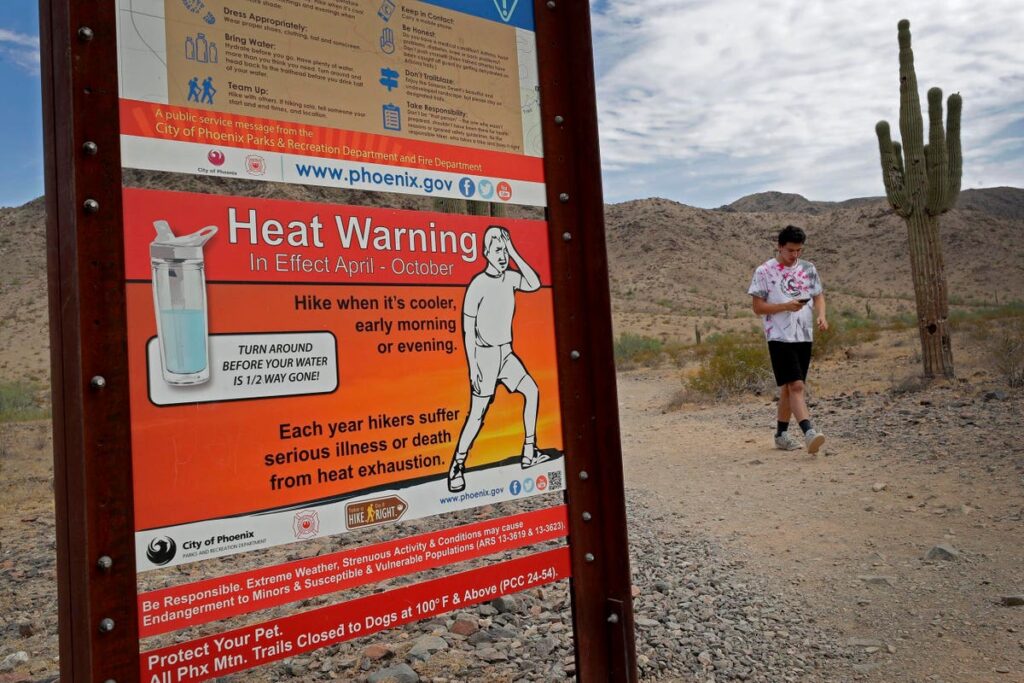Topline
After a summer of many U.S. cities breaking their heat record, the Biden administration is taking a step towards acknowledging the effects of extreme heat—creating a new federal system to track heat-related illness nationwide, NBC News reported Wednesday, but some officials want more done to acknowledge the seriousness of extreme heat on many communities.
Heat is the leading cause of weather-related deaths in the U.S., according to the EPA.
Key Facts
The Health and Human Services Department will oversee a national dashboard, called the EMS HeatTracker, that will include maps of emergency services across the country responding to calls about heat-related illness, NBC reported.
The EMS HeatTracker will also collect multiple data points about who extreme heat is affecting, including the patient’s age, race, gender and urbanicity, officials told NBC.
Crucial Quote
“Heat is no longer a silent killer,” Health and Human services Secretary Xavier Becerra said in a statement to NBC. “From coast-to-coast, communities are battling to keep people cool, safe and alive due to the growing impacts of the climate crisis.”
News Peg
Extreme heat has plagued many major U.S. cities this summer, breaking numerous records. July 4 was the hottest day on Earth in as many as 125,000 years, breaking a record that was set the day before. Arizona, Florida, Maine and New Mexico all had their warmest July on record, NOAA said. Last month was among the top-10 warmest July on record for an additional 13 states. And June was the hottest June in NOAA’s 174-year global climate record.
Key Background
Report of the Biden Administration’s new federal system comes amid growing pressure from many state and local officials for the federal government to do more to address the effects of extreme heat, which is one of the only natural disasters that FEMA is restricted in the way it can respond. Until Congress amends the Stafford Act—federal law that allows the president to provide financial and other assistance to state and local governments during a “major disaster”—to include heat, cities and states are limited in the type of FEMA federal assistance they can get to help with the effects of extreme heat. Arizona Rep. Ruben Gallego (D) introduced the “Extreme Heat Emergency Act” in June, to attempt to amend the current restrictions on what FEMA can do. Gallego told CNN earlier this week that adding heat to the Stafford Act would allow cities in his state to get more mobile cooling units from the federal government.
Surprising Fact
Heat is the leading cause of weather-related deaths in the U.S., according to the Environmental Protection Agency.
Further Reading
July 4 Was Earth’s Hottest Day In Over 100,000 Years—Breaking Record For 2nd Day In A Row (Forbes)
Phoenix, New Orleans, Baton Rouge Break Daily High Temperature Records: Here’s Where Else Daily Records Have Fallen (Forbes)
White House To Unveil A System For Tracking Heat-Related Illnesses Nationwide (NBC News)


